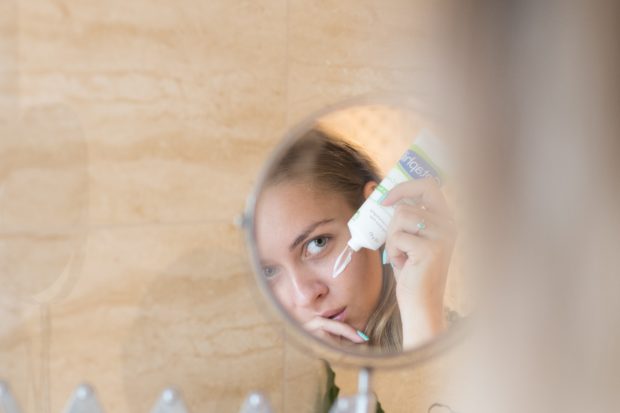Bare Minimum Skincare Routine for Busy Women

Women everywhere who want to start implementing a skincare routine are met with blog posts and articles complicating the process. Many of us just don’t have the time to adopt a 7-12 part skincare regimen that uses over 15 products, so it’s much easier to avoid it entirely.
However, there are endless reasons to take care of your skin, from vanity to preventing poor health outcomes, like cancer. Don’t skip your skincare routine; just reduce the steps.
Skincare Rules for Busy Professionals
As long as your skincare routine is consistent with the following rules, it’ll provide results.
Focus on Your Nighttime Routine
During the night, your skin starts to repair itself, so it’s essential to focus on your nighttime routine first. Ensure that the products you are using for cleansing your skin before going to bed are natural based and don’t contain harsh chemicals which may cause skin rashes and irritations. For cleansing the skin, using lotions and soaps that contain natural ingredients will not only gently remove the dirt from your skin pores but also will nourish the skin. Pure goat milk soaps can be a good choice for those who have oily skin, as it contains natural acids which remove excess oil without any damage to the skin while using harsh drugstore soaps can cause allergies and harm the skin microbiome. If you go to bed with leftover makeup or forget to put on a night cream, you’re more likely to break out in the morning. When you wake up, just wash your face and apply moisturizer.
Stop Confusing Your Skin: Buy Less
Quality skincare that’s made specifically for your skin is better than the quantity on your skincare shelf. If you purchase an all-in-one dermatologist-approved skincare treatment, like the ones found at Nava MD, you’ll stop confusing your skin and prevent regime overload.
Combine SPF With Makeup
Several makeup products come with added SPF, but that doesn’t mean you can stop using sunscreen. More often than not, your makeup won’t be sufficient enough to protect your face from UVA or UVB light. Use tinted sunscreen instead, as it adds protection and coverage.
Add Products Together
A routine with a cleanser, toner, sunscreen, and moisturizer isn’t difficult to manage, but it can get chaotic once you start adding boosters, serums, and eye creams. Reduce your overall skin care burden by adding a drop of vitamin C and hyaluronic acid into your moisturizer.
Don’t Switch it Up
Whether you adopt 4 steps or 10, your skin will start to hate you if you start to switch it up every few days. Dullness and acne won’t go away if you apply a “hands-off” approach to skincare, so just stick to a customized regime based on your skin type that you know you can commit to.
The Best Skincare Regimen by Skin Type
Our skin comes in four types: dry, acne-prone, combination, and sensitive. If you have combination skin, you usually have oily and dry skin or sensitive and dry skin.
Dry Skin
Add products that are hydrating and exfoliate the skin. Never use products with harsh ingredients, like alcohol, but retinol, oleyl alcohol, and cetyl alcohol should be fine.
- Step One: Cleanser
- Step Two: Serum:
- Step Three: Moisturizer
Taking shorter showers, using a humidifier and gentle soaps can reduce dry skin.
Combination Skin
A combination skin type can be dry or normal in some areas, sensitive and oily in others, such as the nose, chin, and forehead. Most people have combination skin and large, open pores.
- Step One: Cleansing Lotion
- Step Two: Treatment Serum
- Step Three: Brightening Mask
It’s difficult to reduce combination skin, but targeted treatment and gentle scrubbing can help.
Acne-Prone Skin
Acne-prone skin is typically more oily, which leads to clogged pores and increased acne production. You may have a dull, shiny, and thick complexion with many large pores.
- Step One: Gel Cleanser
- Step Two: Alcohol-Free Toner
- Step Three: Repairing Moisturizer
If your acne persists, consider taking a prescribed oral acne treatment, like birth control.
Sensitive Skin
Do you find that most products irritate your skin and cause redness or blotchiness? If that’s the case, you likely have sensitive skin. Rosacea and hives could make your skin more sensitive.
- Step One: Moisturizing Cleanser
- Step Two: Red-Reducing Serums
- Step Three: Anti-Inflammatory Creams
Dry and sensitive skin often go hand in hand, so limit hot showers and start moisturizing daily.



